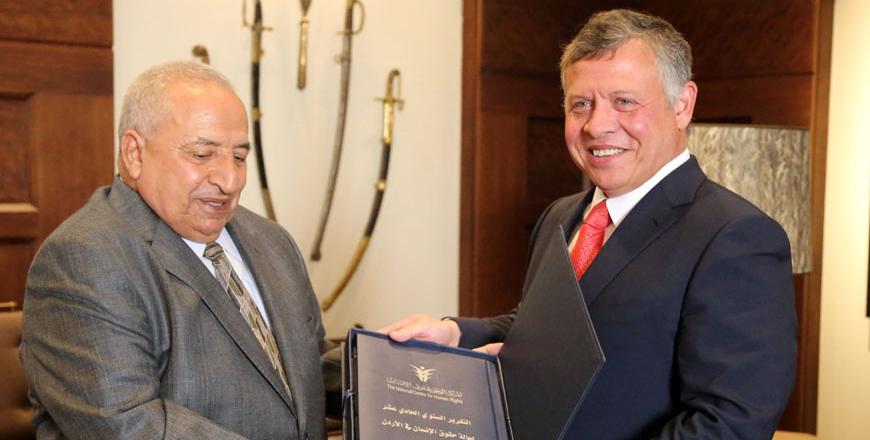You are here
NCHR calls for clear legal definition of crimes threatening national security
By Rana Husseini - Aug 18,2015 - Last updated at Aug 18,2015
AMMAN — The status of human rights in Jordan regarding freedom of expression and the press remains a main concern, according to the annual report on the conditions of human rights in the country in 2014.
“One of the greatest challenges regarding freedom of expression and the press is the lack of clear legislation that specifies the offences that threaten national security. The current laws are ambiguous,” Mousa Burayzat, the commissioner general of the National Centre for Human Right (NCHR), told reporters on Monday.
“Claims of torture and abuse continue, but there have been substantial improvements in ensuring fair trials,” Burayzat said.
The report focused on civil, political, social and economic rights and the manner in which the NCHR dealt with the complaints it received, in cooperation with various stakeholders.
It covered public life, legislative conditions, the situation of detention facilities and prisoners, administrative detention centres and the role of administrative officials.
The report also dealt with the situation of higher and compulsory education, and the problems that should be addressed at the national level in this sector, Burayzat said at the press conference.
The report criticised the government’s execution of 11 men convicted of murder in 2014 and called for scrapping the death penalty.
The death penalty in Jordan had been frozen since March 2006 before the government decided to reinstate it last year.
“The execution of 11 came as a surprise and ... without prior notification of the inmates or their families as stipulated in international norms,” the report stated.
Turning to alleged torture cases, the report said there were 87 reported cases in 2014, including 62 that are still being investigated.
“The legal environment in Jordan still falls short in following up on alleged perpetrators of torture and conducting proper investigations, which leads to many escaping punishment and victims of torture are not compensated as a result,” the report said.
It recommended introducing a national mechanism under which a team would visit detainees regularly, and called for establishing specialised rehabilitation centres for victims of torture.
The report also recommended introducing and/or amending laws related to torture to enhance investigation procedures, ensure justice for the abused and provide financial compensation in cases that are proved in courts.
Turning to the General Intelligence Department (GID), the report stated that the NCHR conducted one visit in 2014 to check on the detainees there.
At the GID detention centre, some individuals were placed in solitary confinement for long periods and were either prevented from having visitors or were not allowed to sit alone with their family members, according to the NCHR report.
The report recommended allowing the NCHR to conduct more visits to the GID detention cells and to allow for unannounced visits.
Other recommendations include working on raising citizens’ awareness of their rights and duties.
The NCHR is urging the government to speed up political and social reform and expand its partnership with civil society.
Basel Tarawneh, the government coordinator on human rights, said during the press conference that his office will start examining the NCHR’s recommendations and observations and “will take the necessary measures to follow up on them”.
Tarawneh added that his office will also present these comments and recommendations to the concerned ministries and government agencies for follow up.
On Sunday, His Majesty King Abdullah received the NCHR report and expressed his pride in the country’s compliance with human rights, stressing his commitment to further promoting them to reflect the aspirations of the Jordanian people in accordance with best international practices.
King Abdullah said all concerned parties, public and private, should work together to build on previous accomplishments in the field of civil, political and social rights.
On Monday, Prime Minister Abdullah Ensour also received a copy of the 11th annual NCHR report.
At a meeting with NCHR Board Chairman Mohammad Adnan Al Bakhit, Ensour stressed the importance of the report in supporting the government’s efforts in spreading and enhancing human rights in the Kingdom.
For his part, Bakhit highlighted the recommendations, stressing that the report presents a briefing on the status of human rights in the Kingdom, the Jordan News Agency, Petra, reported.
Related Articles
AMMAN — His Majesty King Abdullah on Sunday expressed his pride in the country's compliance with human rights and his commitment to further
AMMAN — Senate President Abdur-Ra’uf S.
AMMAN — The National Centre for Human Rights (NCHR) on Monday said that it had received over 100 claims of torture and cruel treatment at th












